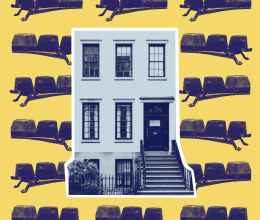
The debate over the NFL’s botched handling of Ray Rice’s brutal assault on his now wife threatens to divert our nation’s attention from the real issue: the need to treat seriously incidents of domestic violence and to enact laws and policies that aid survivors in their attempts to escape violence. Time and again, those who suffer intimate partner violence are victimized – not only by the partner who abuses them but by society at large. Sadly, our laws often are complicit in this victimization.
One pernicious but little known way our laws harm survivors is through the enforcement of so-called crime-free housing and nuisance laws enacted by local governments throughout the country. Under these laws, rental property is deemed a “nuisance” when a certain number of calls have been made to the police or alleged nuisance conduct has occurred on the property. They force landlords to evict tenants, regardless of whether the tenant is the victim and is calling for police assistance.
A recent case from a Chicago suburb shows how these laws victimize domestic violence survivors a second time. A woman was assaulted in her rental home by her boyfriend. The police were called and her boyfriend was arrested. Invoking a so-called “crime-free housing” ordinance, the local government threatened to designate the rental home as a “chronic disorderly house” as a result of the incident of domestic violence. The local government directed the landlord to immediately take corrective action, including the eviction of the entire household. The landlord avoided the “chronic disorderly house” designation by evicting the household, including the victim of violence.
Crime-free housing or nuisance ordinances are widespread and increasing in both number and scope. Already, more than 100 towns and cities in Illinois have such laws. They purportedly are aimed at making communities safer but in reality, undermine public safety by forcing victims of domestic violence not to call the police and endure more serious abuse. These laws pressure women into suffering in silence because they fear that if they seek police protection, they risk losing their home. Indeed, testimony offered to Congress in support of the Violence Against Women Act documents that fear of becoming homeless is one of the biggest obstacles women confront when weighing whether to leave the person who abuses them.
Focusing our attention only on the NFL’s gross mishandling of the Rice case would be as myopic as Goodell’s initial response. Domestic violence hurts millions of Americans each year – not just the wives and partners of professional football players. (According to the Centers for Disease Control and Prevention, nearly 23% of all American women and 14 % of American men suffer serious physical violence at the hands of an intimate partner.) We must confront and change the ways in which our legal system turns a blind eye – or worse to this abuse.
A good way to start would be the repeal of crime-free housing and nuisance ordinances. In addition, the Illinois General Assembly should consider enacting a law, similar to one introduced in Pennsylvania this past year that would clarify existing rights to seek emergency aid and would prohibit municipalities from penalizing people because they sought police protection.
Rather than continue to focus on the future of the NFL Commissioner, or debate why Jenay Rice married her husband after he struck her so brutally, we should use this moment of national discussion about domestic violence to focus on changing laws and systems that further victimize survivors. We should start with fixing “crime-free housing” and “nuisance” ordinances.
This article was published as a letter to the editor in the Chicago Daily Law Bulletin on September 26, 2014.